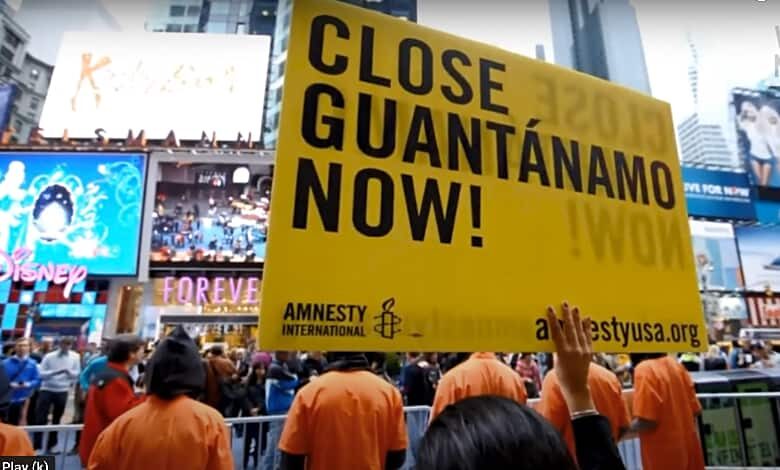The Shocking Secret Behind ‘Jihad Rehab’s’ Cancel Culture Comeback
Controversial doc roars back to life, partially thanks to a very unlikely source

Directors dream of getting their films screened at the Sundance Film Festival.
For Meg Smaker, that dream curdled into a nightmare, but there may be a happy ending after all.
Smaker’s “Jihad Rehab,” a thoughtful examination of Guantanamo Bay detainees and their attempts to return to society, earned glowing reviews from the festival circuit.
The pre-release buzz proved deafening, Smaker told National Review.
“EVERY sales agent that saw the film wanted to rep it … EVERY PR firm who saw the film wanted to rep it. EVERY big festival we applied to, we got into, except Cannes and Berlin.”
Snagging a Sundance slot earlier this year, though, seemed the ultimate triumph.
The trouble began when critics attacked the film on several levels, despite many never having seen the film. Some said the five prisoners weren’t fully able to grant their consent to being interviewed, even though Smaker had secured their approval.
Others argued a white filmmaker shouldn’t tell a story about Arab detainees, despite her extensive experience in the Muslim world and the obvious fallacy of that Identity Politics argument.
Even the film’s title came under attack, seen as stereotyping Arab culture as violent.
Jihad Rehab: former Guantánamo prisoners call for documentary to be withdrawn https://t.co/y5Ykx8GafP
— Guardian news (@guardiannews) July 29, 2022
Smaker’s film world collapsed on her. Sundance apologized for showing the film, saying the screening “harmed” the community without providing specifics. Two Sundance employees quit in protest of the film’s selection.
Other festivals dropped “Jihad Rehab” from their lineups. Distributors similarly abandoned the film.
Far-left activist Abigail Disney, who served as an executive producer on the feature, backpedaled in dramatic fashion.
I failed, failed, and absolutely failed to understand just how exhausted by and disgusted with the perpetual representation of Muslim men and women as terrorists or former terrorists or potential terrorists the Muslim people are. That was a failure of empathy and respect on my part—and therefore the gravest of failures.
Previously, Disney praised the film in a missive to Smaker, shared by National Review.
“This film is SOOOO good and SOOO gorgeously shot and SOOOO well edited that you must take in this one thing before you read on: WOW WOW WOW. You have made something great.”
Disney’s subsequent apology helped crush the film’s future.
That’s when Smaker took her fight public.
She set up a crowdfunding campaign to secure money to distribute the film herself. That effort yielded nearly four times her budgeted goal of $200,000, partially thanks to the support of podcaster and author Sam Harris.
The film, now known as “The UnRedacted,” will screen across California this month – Dec. 10 in Los Angeles as well as Dec. 9-15 in Santa Monica and Dec. 13 in Malibu.
TheWrap’s Screening Series hits NYC with “Unredacted (Jihad Rehab) featuring filmmaker Meg Smaker @meighton pic.twitter.com/Ltb889zj44
— TheWrap (@TheWrap) December 7, 2022
The Dec. 10 screening is noteworthy.
The event is being sponsored by TheWrap.com, a far-Left news site covering all things Hollywood. Editor-in-Chief Sharon Waxman will host the post-screening Q&A.
TheWrap is one of many news outlets that embraces Cancel Culture. The site hosted a series on the subject last year, with speakers cheering the far-Left ideology with few caveats.
Waxman wrote about Smaker’s comeback story, citing a shocking reason for its resurgence.
Journalists.
Media outlets routinely side against canceled figures. Reporters have hounded J.K. Rowling, Dave Chappelle, Roseanne Barr, Morgan Wallen and others in recent years, siding with social justice warriors in the process.
National Review, a right-leaning outlet, quickly rallied to Smaker’s side after “Jihad Rehab” got canceled. So, too, did The Atlantic, The New York Times and, later, TheWrap.com. The Atlantic’s report called out Sundance’s cowardice.
Seeing three liberal bastions rally behind Smaker had an impact. Except Waxman’s report on the film’s comeback couldn’t acknowledge an inconvenient truth. The vast majority of Cancel Culture attacks hail from the Left.
Waxman pretended otherwise.
And so “Jihad Rehab” – renamed “The UnRedacted” as Smaker hoped to quell objections to the film – became the latest sacrifice to cancel culture, this time from the left [emphasis added].
Cancel Culture rages on. While some free speech victories emerge, the toxic trend shows little sign of abating. That might change, though, if journalists rose up, en masse, as they did in the case of “The UnRedacted.”
The documentary’s comeback shows how the media can stop Cancel Culture in its tracks. Now, the only question remaining is simple.
Do enough journalists want that to happen?

Whenever they want to cancel a facist, it’s always a Leftist looking in a mirror.